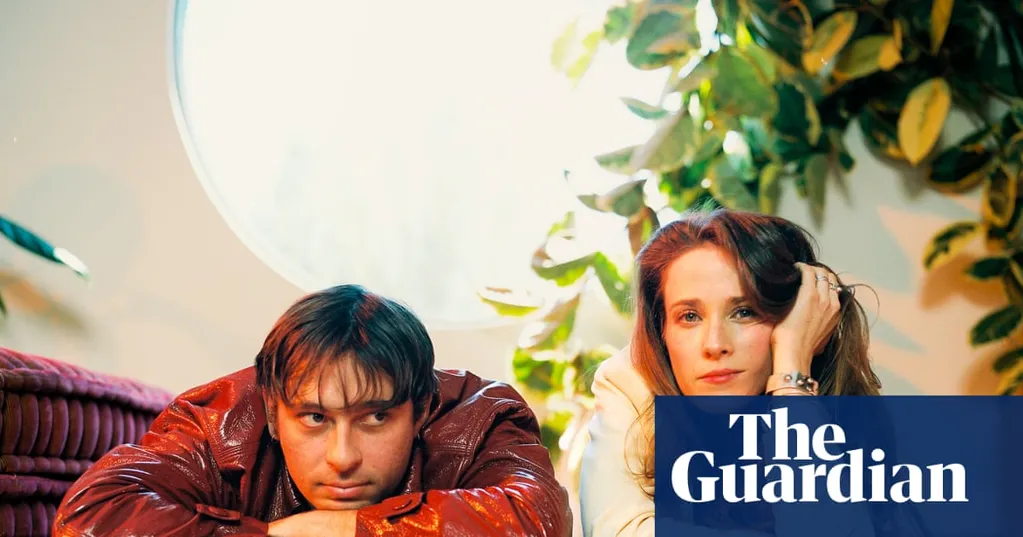The singer's diagnoses with autism and ADHD have fueled a collaborative album with Flume titled Dumb - a word that 'captures everything that I've had to overcome'
"Did I say autism and ADHD? My god, I'm so brave," Emma Louise Lobb laughs on Zoom. Bravery is necessary when "coming out" as anything outside the norm, but for the musician, who performs as Emma Louise, letting the world know about her AuDHD - the unofficial term for both autism spectrum disorder and attention-deficit hyperactive disorder (ADHD) - is also about self-acceptance.
The 34-year-old Jungle singer was first diagnosed with ADHD in her twenties, but only discovered her autism in the past few years. The two diagnoses have put many of her life experiences into perspective. "There was definitely grief, especially about the second one [autism]," she says. "I just wish I knew [earlier], because I've suffered so much, just feeling unworthy and not good enough ... [That] definitely got me into situations or relationships that weren't very healthy. Looking back, I can see how it all happened."
Lobb is not alone. It's common for women to be diagnosed later in life for ADHD and autism because symptoms are often overlooked or misdiagnosed in childhood. As a new understanding and acceptance of neurodiversity emerges, more and more people are getting to know themselves. "The last three years, I've just been peeling back layers and discovering whole new parts of me that I truly love," Lobb says.
This experience is central to Dumb, her collaborative album with Harley Streten, the producer better known as Flume. Streten and Lobb live in Los Angeles, but their Australian home bases are in the northern rivers region of New South Wales, where they started making music together. The first song they released was Hollow, a track on Flume's 2022 album Palaces.
Musically and personally, the pair share an understanding. "Harley and I are very similar - we struggle with the same things, and we get along really well in a very abstract way that I think neurodiverse people would understand," Lobb says.
Streten's glitchy, sometimes abrasive electronica provides a foil for Lobb's gentle vocals. On lead single Easy Goodbye, her voice eventually distorts to transform into a skittering, screeching soundscape. Sonically, it is worlds apart from her usual folk-pop, although snatches of that peek through on tracks such as the piano-led Monsoon and ballad Stay, both of which still build towards subtle explosions. These are love songs with an edge.
The convergence of musical styles gives both musicians a soft place to land. "Emma is a trip - she floats in the clouds and I sit somewhere between, tethered to the earth," Streten says via email. "When we are in the studio, we are floating."
Lobb is discomfited by her voice but she recognises and appreciates its artistic value. "I think that my voice is very shiny and like a little pretty fairy," she says. "I always wish I could scream." She has employed creative techniques to ease that tension: on her last solo album, 2018's Lilac Everything, she pitched her voice down to make it unrecognisable. On Dumb, it is cloaked in different sounds and effects.
"I love working with Harley, because it gives me the chance to be able to make it feral - it's just so fun watching him transform everything," Lobb says. "I feel like I have permission to, at any moment, change direction, or destroy something and make it into something else."
Dumb is not explicitly about neurodivergence, but that part of Lobb's identity is "in the undercurrent of everything". Music provides her with an avenue to communicate when her emotions become overwhelming. "If something happens to me ... I won't be able to figure it out in my head, and it'll be so confusing emotionally - and if I let it keep going, dysregulating," she says. "But if I get a guitar or a piano, and I close my eyes and play something and start writing ... I feel that relief, because I have put it in a form that I understand."
The pair adopted the mantra of "making it dumb" in the writing and recording process so that what came out was unfiltered and real. When it came time to give the album a name, it was a no-brainer; Lobb is aware of the word's ableist connotations and consulted with fellow neurodivergent people before settling on the title. "I feel like it will, at least, open up a conversation," she says. "We don't want to offend anyone with it ... I'm keen to hear what it makes everybody feel, especially people who are neurodiverse."
Lobb is also reclaiming a word that has been used as a weapon against her all her life. "It captures everything that I've had to heal and overcome," she says. "I wouldn't be able to release it if I felt in any part of me that I was less than somebody who's neurotypical."
